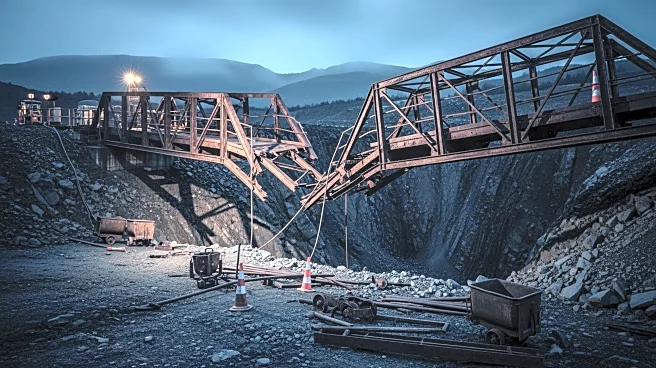What's Happening?
A makeshift bridge at the Kalando cobalt mine in the Democratic Republic of Congo (DRC) collapsed, resulting in the deaths of at least 32 people. The collapse occurred as unauthorized miners forced their way into the site, despite a ban due to heavy rainfall
and landslide risks. Panic ensued when military personnel reportedly fired guns, causing miners to rush the bridge, which then collapsed. The DRC is a major supplier of cobalt, essential for electric vehicle batteries, and the mining sector has been plagued by safety and human rights issues.
Why It's Important?
The incident highlights the ongoing safety challenges in the DRC's mining sector, which is crucial for the global supply of cobalt. The mining industry in the DRC has faced scrutiny for unsafe working conditions, child labor, and corruption. The collapse underscores the risks faced by miners in largely unregulated operations, where accidents are frequent. The involvement of military personnel and the subsequent panic raise questions about the security measures at mining sites and the potential for human rights violations. The DRC's mining sector is vital for the global tech industry, particularly for electric vehicle production, making the safety and ethical practices in these mines a matter of international concern.
What's Next?
There are calls for an independent investigation into the military's role in the incident, as well as the broader security practices at mining sites. The DRC government may face increased pressure to improve safety standards and address the allegations of human rights abuses in the mining sector. The international community, particularly countries and companies reliant on cobalt, may also push for reforms to ensure ethical sourcing of minerals.
Beyond the Headlines
The incident could lead to a reevaluation of the DRC's mining policies and the role of foreign companies in the sector. The dominance of Chinese companies in cobalt production may come under scrutiny, potentially affecting international trade relations. The ethical implications of sourcing minerals from regions with poor safety records and human rights issues could influence consumer behavior and corporate policies globally.















